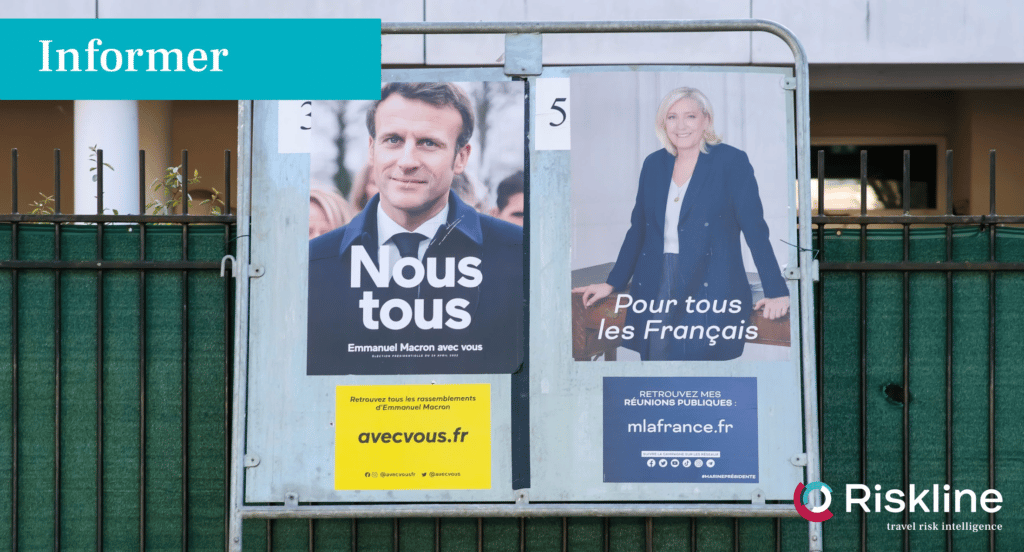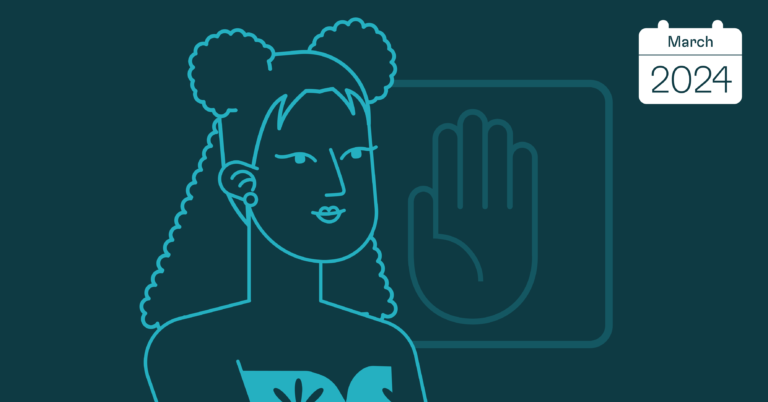By Nikita Billier
Introduction
The first round of voting in the 2022 French presidential election was marked above all by a record abstention rate (26.3%), which eclipsed that of the first round of the previous presidential election in 2017 (22.2%). The further collapse of the country’s traditional left and right parties was spectacular, with the Socialist Party (PS) candidate obtaining only 1.8% of the vote, the worst showing in the party’s history, while the candidate of the traditional right-wing party, Les Républicains (LR), obtained only 4.8% of the votes. (Both parties finished below the 5% threshold so are ineligible for the reimbursement of their campaign expenses with public funds.)
The historic breakthrough of the far-right, and to a lesser extent, the far-left, were the most notable results. Collectively, far-right candidates won 32.3% of the vote, carried by three candidates, Marine Le Pen, Eric Zemmour and Nicolas Dupont-Aignan, though only National Rally (RN) candidate Le Pen will advance to the second round with 23.2% of the vote while firebrand ultra-nationalist candidate Eric Zemmour, who initially led Le Pen in some polls, only won 7.1%.
The left-wing populist France Unbowed (FI) also achieved a strong showing with its leader Jean-Luc Mélenchon obtaining almost 22% of the vote; Mélenchon could very well have made it to the second round instead of Le Pen had there not been so many minor leftist candidates siphoning votes. Since the first round, the PS and LR candidates have endorsed incumbent President Emmanuel Macron, who took 27.8% of the vote; Mélenchon has instead only urged his supporters not to vote for Le Pen, rather than explicitly endorse Macron, whose centre-right economic agenda remains anathema to FI supporters. (All far-right candidates urged their supporters to vote for Le Pen regardless of their prior criticism of her.)
After me, the deluge
The second round of the French presidential election in 2022 will not be a simple rematch of the 2017 second round. In five years, Marine Le Pen has managed to change her image. Her programme remains far-right, notably on immigration and proposed plans to bypass both Parliament and the Constitutional Council through referendums. But it also appealed to a large part of the electorate with numerous social promises, including the nationalisation of energy, education, transportation and healthcare, and a tactical retreat on some cultural issues such as LGBT marriage.
Macron, on the other hand, has to run on his actual record, unlike his appeal to voters in 2017 as the surprise ‘disruption’ candidate and only choice between the mainstream and a far-right victory. In 2017, Macron defeated Le Pen in the second round with 66.1% of the vote to her 33.9%; the most recent second round polling has put him at 55.5% and her at 44.5%. After five years in office, Macron bears the scars of the severe crises he had to face, such as the “Gilets Jaunes” (Yellow Vests) social protests and the COVID-19 pandemic.
He suffers in particular from the image of being “the president of the rich.” The far-right’s focus on cost of living and housing issues has in particular blunted criticism of their Eurosceptic foreign policy agenda, while Macron has tried to focus on the latter with respect to the conflict in Ukraine. Polls show, however, that he only received a temporary boost from foreign policymaking, necessitating a pivot to domestic issues to regain ground against Le Pen.
Moreover, except for Charles de Gaulle, who was proclaimed to the office but not elected in 1959, no incumbent president has ever been re-elected in France under the Fifth Republic unless emerging from a period of cohabitation. François Mitterrand, in 1988, and Jacques Chirac, in 2002, were re-elected but without having a record to defend because coming out of a period of cohabitation, they were running against the legislative majority from which their government had emerged.
Macron supporters cite the country achieving its lowest unemployment rate in 15 years, at 7.4% and strong economic growth despite the impact of COVID-19. The two-week period between the first and second rounds of voting has seen Macron trying to solve a complex equation by not renouncing elements of his centre-right programme at the risk of losing core supporters and the rallying of the traditional right-wing electorate, while including social measures intended to rally left-leaning voters from the first round who are more likely to abstain than vote for either candidate. His declarations between the two rounds on the softening of his pension reform project demonstrate the difficulty in walking this line, as extending the retirement age is deeply unpopular but walking it back may be seen as desperation and pandering.
The deep cleavages in French society, which redrew the political map during the 2017 presidential election, is now even more accentuated in 2022. It is the one that opposes the France of those included in globalisation and that of those who feel excluded from it, that of the supporters of a strengthening of Europe, and that of advocates for an independent French path. The second round of the French presidential election will be at the same time a form of French referendum on European integration.
Summary
French voters for the second presidential election in a row will choose between a far-right candidate and a centrist at a time of economic upheaval and uncertainty over France’s place in Europe. Unlike in 2017, however, the outcome is far less certain as the far-right has gained ground and disillusionment with voting at all is high.
Nikita Billier is an France-based political and security risk analyst covering Europe















